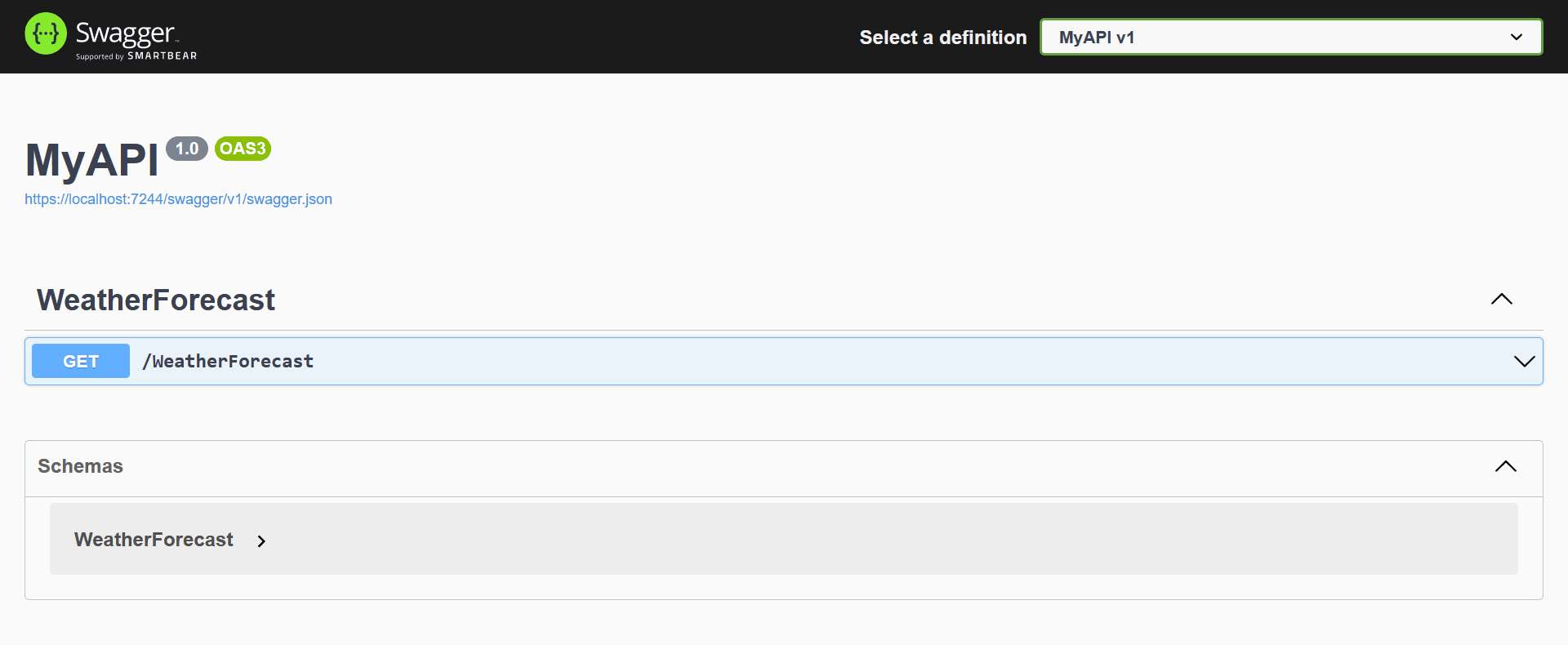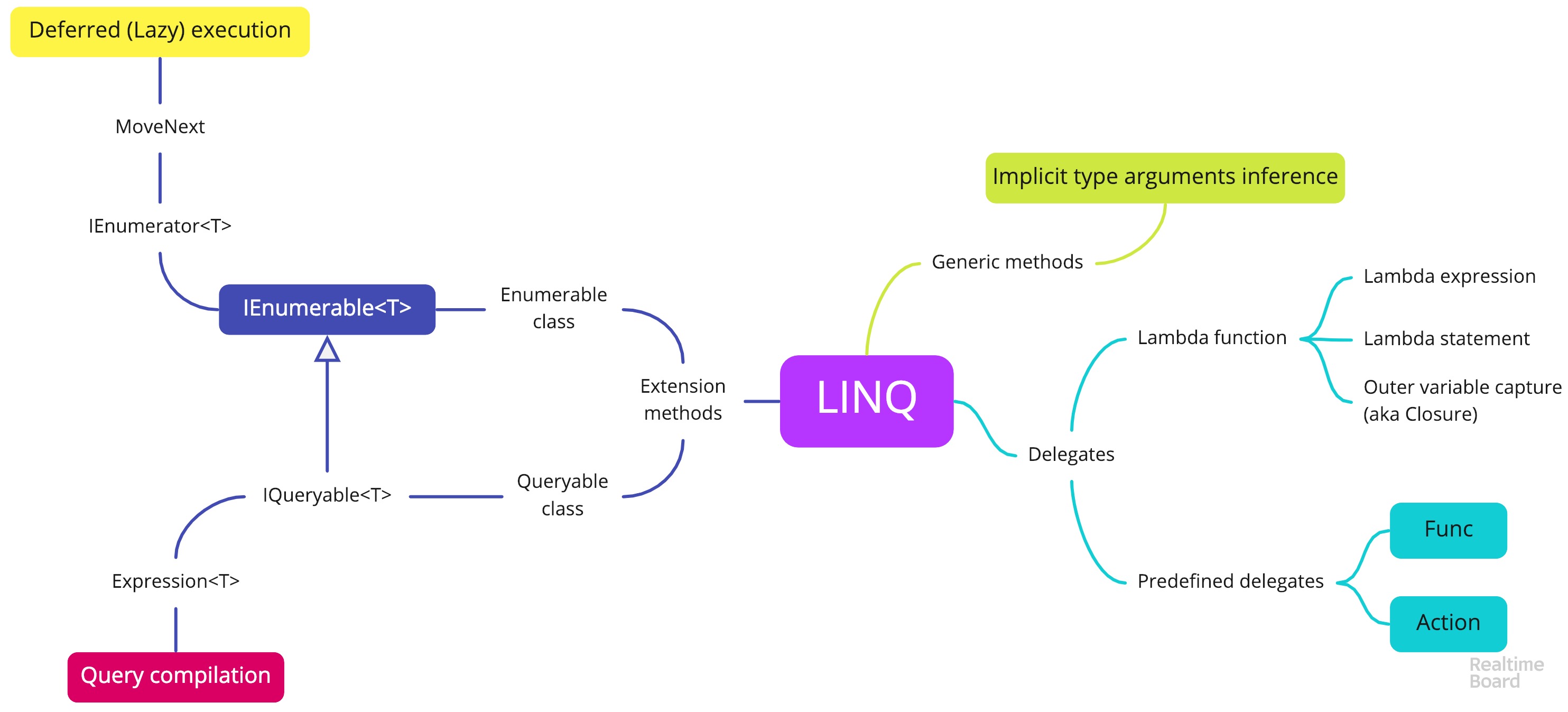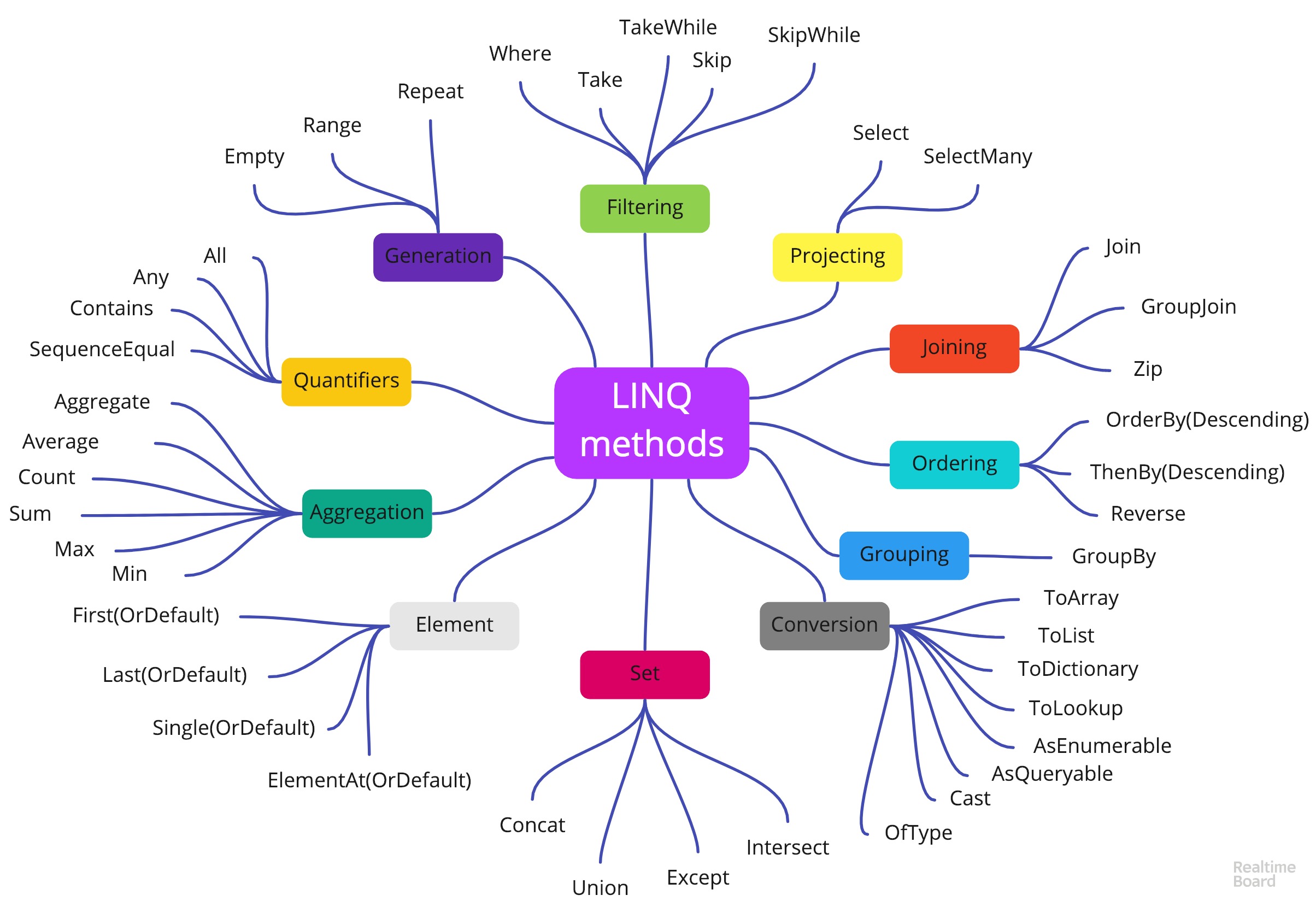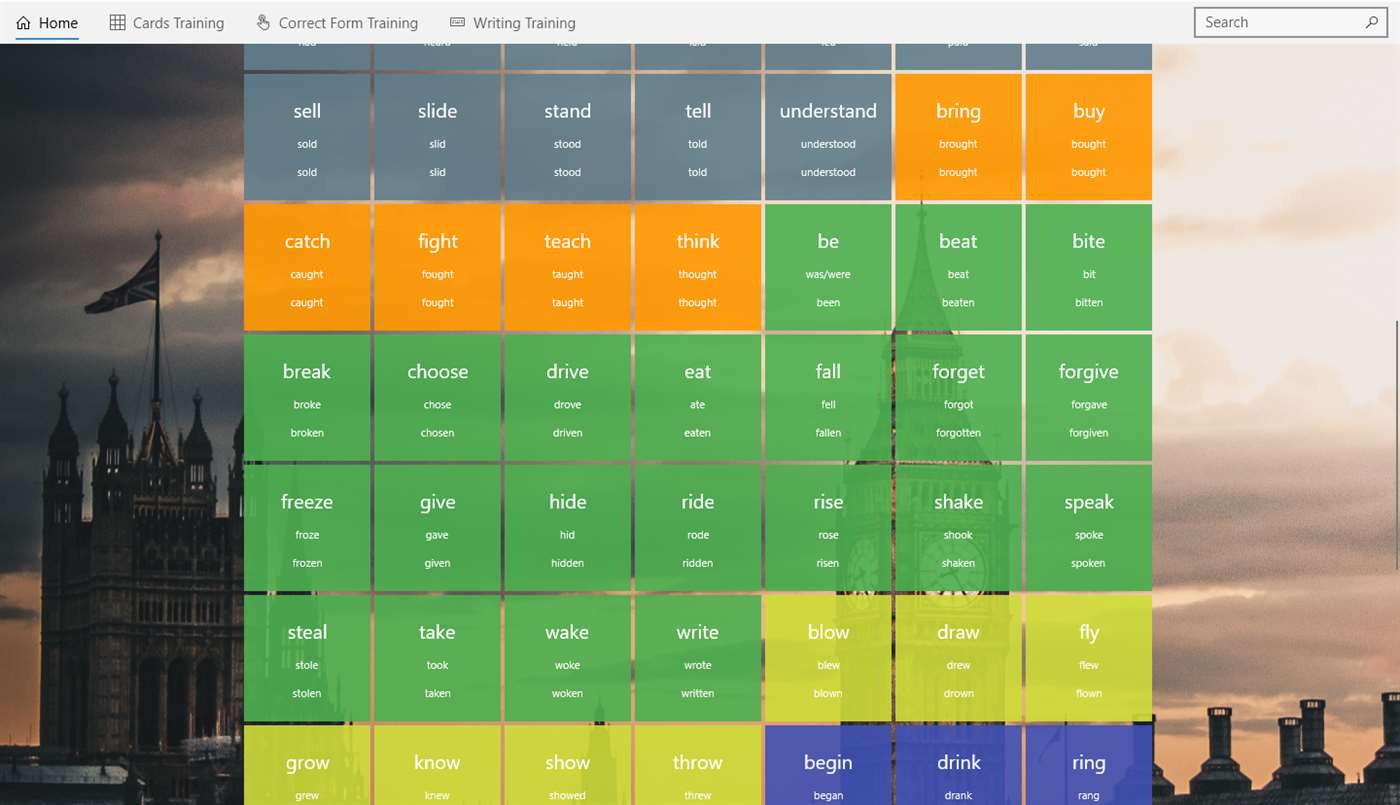08 Jun 2022

I have come across a rather nasty bug: after a successful build of our ASP.NET 5 app, we generate a swagger file using Swashbuckle.AspNetCore.Cli tool with dotnet swagger tofile command. This is set up as a postbuild event. Unfortunately, it doesn’t work on my machine, but it does work completely fine on my colleague’s machine.
UDPATE (4/20/2024): if you encounter this error with .NET 8 - read my new post addressing this issue.
>>> Continue reading <<<
02 Jan 2019
That’s it. Well, this is not very efficient, and shouldn’t be used in real-world scenarios,
but it shows how powerful LINQ can be.
We compare this code with imperative version and even with Haskell below.
>>> Continue reading <<<
27 Dec 2018

Open in full resolution.
More mind maps which can be useful for .NET learners.
LINQ is an important topic, and understanding its concepts is crucial.

Open in full resolution.
LINQ is built around IEnumerable<T> and IEnumerator<T> interfaces.
It is implemented as extension generic methods which allows us to use it
with all collection classes.
>>> Continue reading <<<
25 Dec 2018

Open in full resolution.
Since I’m teaching .NET 101 course again, I decided that it would be
helpful to have some mind maps on the topics we cover. The first such
topic is .NET collections.
This post is not a complete manual, but rather a summary on the topic.
>>> Continue reading <<<
22 Nov 2018

Hi, I released a new application in Microsoft Store (available on Windows 10 devices) called “Do Did Done - Learn English Irregular Verbs”. You can download it here. Well, formally, it’s not new, but rather a drastic update to my old app “Irregular verbs trainer”.
The logic is the same, there are English irregular verbs with corresponding past simple and past participle forms grouped logically. There are also three kinds of exercises: flipping card, multiple-choice test and writing test. Based on my testing, it can really help you to learn Irregular Verbs.
But what is new?
>>> Continue reading <<<




